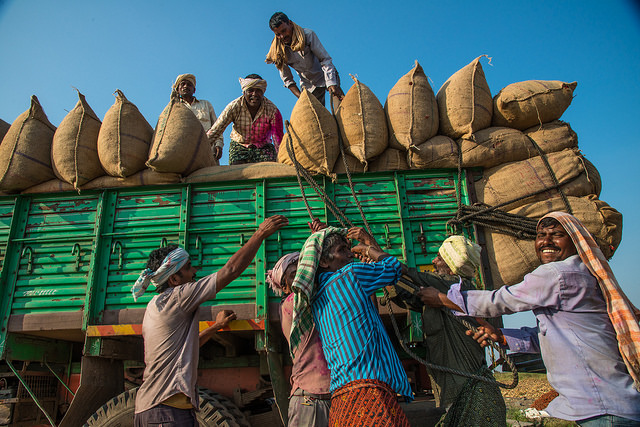The Importance of the U.S. Office of Global Food Security
 The United States Office of Global Food Security provides crucial, life-saving humanitarian aid to the world’s poorest countries. The Office of Global Food Security (OGFS) seeks to advance global food security by addressing the underlying causes of hunger and malnutrition, investing in country-led programs, leveraging multilateral institutions and making accountable, sustained commitments.
The United States Office of Global Food Security provides crucial, life-saving humanitarian aid to the world’s poorest countries. The Office of Global Food Security (OGFS) seeks to advance global food security by addressing the underlying causes of hunger and malnutrition, investing in country-led programs, leveraging multilateral institutions and making accountable, sustained commitments.
One of the initiatives of the OGFS is an organization called 1,000 Days, and it shows the importance of providing and achieving global food security. The purpose of 1,000 Days is to ensure the best nutrition during a woman’s pregnancy up until the second birthday of that child, as this “sets the foundation for all the days that follow,” as the organization’s official website states.
According to the organization, nutrition during pregnancy up until the second birthday provides the essentials for brain development, healthy growth and a strong immune system. A person’s predisposition to chronic diseases and obesity are also linked to this thousand-day window. Malnourished daughters who become malnourished mothers can also give birth to malnourished children, continuing the cycle.
Feed the Future serves as an OGFS initiative as well, with its focus being combating hunger and poverty around the world. The areas the initiative seeks to improve upon are inclusive agriculture sector growth, gender integration, improved nutrition, research and capacity building, private sector engagement and resilience.
Some of the key accomplishments of Feed the Future from 2017 include 1.7 million families no longer suffering from hunger and $2.6 billion in crop sales generated by farmers. Furthermore, more than nine million more people now live above the poverty line due to the initiative.
Despite the effectiveness of the Office of Global Food Security’s efforts to reduce hunger, President Trump’s administration said it would withdraw funding to the Global Agriculture and Food Security Program, or GAFSP. Created during the Obama administration, GAFSP was designed as an integral part of the Feed the Future initiative. GAFSP’s main goals are to raise farmer incomes, increase food security and prevent unrest that results from food shortages.
The United States is the program’s biggest donor, with $653 million to date. In an interview with Foreign Policy, Marie Clarke, a member of the GAFSP steering committee and executive director of the nonprofit ActionAid USA, explained that withdrawing the United States’ funding could be extremely harmful to economic development, security and humanitarian conditions in the world’s most susceptible regions.
Hopefully, withdrawing funding for GAFSP will not set the tone for how much the U.S. Office of Global Food Security will be able to spend on reducing global hunger. The continued vigilance of such organizations, supported by nations like the U.S., is supremely important in the fight against poverty.
– Blake Chambers
Photo: Flickr
